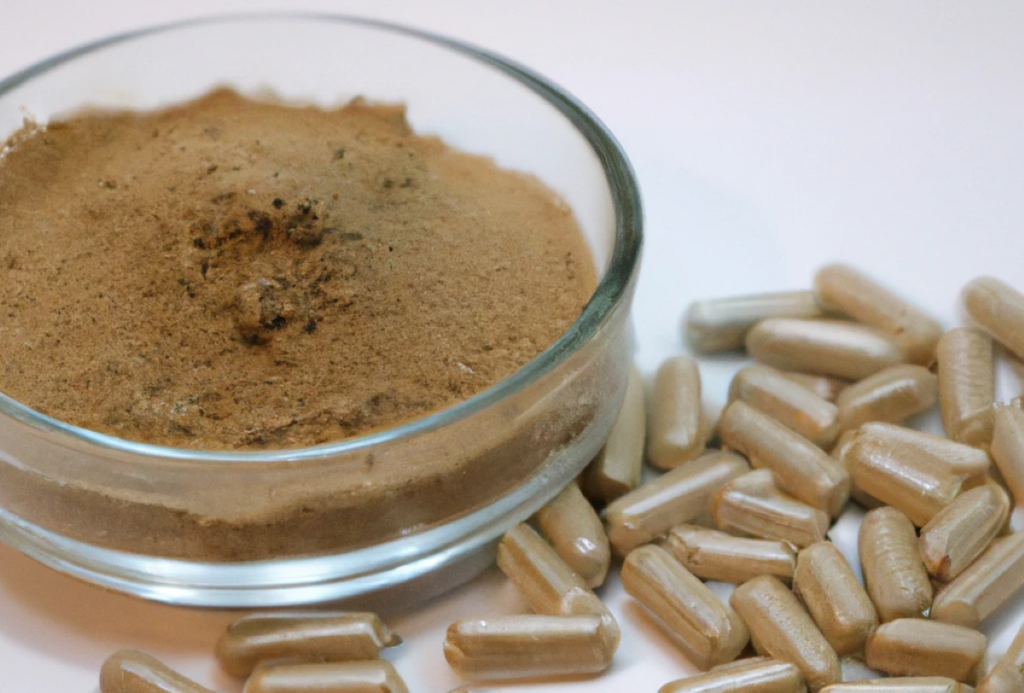Ashwagandha and Magnesium Glycinate are two powerhouses known for their stress-relieving and sleep-enhancing benefits.
But can ashwagandha and magnesium glycinate be taken together?
This question often arises for those seeking to harness the combined powers of these supplements for improved well-being. Ashwagandha, an ancient herb with roots in Ayurvedic medicine, offers a natural way to combat stress and anxiety, while Magnesium Glycinate provides a bioavailable form of magnesium that promotes relaxation and sleep.
Together, they promise a synergistic approach to managing stress, improving sleep, and enhancing overall health. Here, we will look into the safety, benefits, and potential side effects of combining these supplements, providing insights from various sources.
Let’s explore whether Ashwagandha and Magnesium Glycinate can become a dynamic duo in your wellness routine.
Magnesium Glycinate and Ashwagandha Together
When used together, Ashwagandha and Magnesium Glycinate can complement each other in supporting stress reduction, improving sleep quality, and enhancing overall mental and physical health.
Ashwagandha’s adaptogenic effects, combined with the calming and neuroprotective properties of Magnesium Glycinate, make this combination popular among those seeking natural solutions to manage stress, anxiety, sleep disorders, and various health conditions.
Both Ashwagandha and Magnesium Glycinate have been shown to promote relaxation and support a healthy sleep cycle, making them a potent pair for those struggling with sleep issues or stress-related problems.
What time of day should I take ashwagandha and magnesium?
When taking Ashwagandha and Magnesium together, consider your primary goals. If you aim to improve sleep or reduce evening stress, taking both supplements in the evening might be most beneficial.
On the other hand, if you’re more focused on the stress-reducing and cognitive benefits of Ashwagandha throughout the day, you might choose to take Ashwagandha in the morning or afternoon and save Magnesium for the evening.
Ashwagandha and Magnesium Glycinate: Side Effects
Ashwagandha may cause mild side effects such as digestive upset or sleepiness, especially at high doses. At the same time, Magnesium Glycinate is generally well-tolerated but can cause gastrointestinal symptoms like diarrhea in some individuals.
These side effects are generally rare and can often be mitigated by adhering to recommended dosages.

Ashwagandha and Magnesium Glycinate Differences
| Feature | Ashwagandha | Magnesium Glycinate |
|---|---|---|
| Primary Use | Adaptogen known for stress relief and enhancing cognitive function. | Treat prophylaxis and metal-deficiency. |
| Benefits | Reduces stress and anxiety, improves sleep, enhances cognitive function, and increases stamina. | Crucial for mood regulation and sleep. It also manages anxiety and insomnia and promotes muscle relaxation. |
| Side Effects | Promotes relaxation, improves sleep quality, aids muscle relaxation, and supports bone health. | Well-tolerated; may cause gastrointestinal symptoms like diarrhea in some individuals at high doses. |
| Mechanism of Action | Works by regulating the production of stress hormones such as cortisol. | Binds to and activates GABA receptors in the brain, supporting relaxation. |
| Forms Available | Powder, pills, capsules. | Liquid, powder, tablets, capsules, pills. |
| Chemical Composition | Contains bioactive compounds like withanolides. | C4H8MgN2O4, bound to the amino acid glycine. |
| Recommended Dosage | 300-500 mg of standardized extract once or twice daily. | Typically around 200-400 mg daily. |
| Special Considerations | High doses can cause gastrointestinal issues; they should be used with caution by individuals with kidney disorders. | High doses can cause gastrointestinal issues; should be used with caution by individuals with kidney disorders. |
| Interactions | May interact with certain medications, including those for thyroid, blood pressure, and diabetes. | May enhance the effects of sedatives or anti-anxiety medications due to its calming effects. |
The Science behind Ashwagandha and Magnesium Glycinate
When taken together, Ashwagandha and Magnesium Glycinate may offer synergistic effects, especially in stress management and sleep improvement. Ashwagandha’s adaptogenic effects can help the body to balance and manage stress more effectively. At the same time, magnesium glycinate’s role in neurotransmitter synthesis and muscle relaxation can further enhance the body’s response to stress, promote better sleep quality, and support overall neurological health.
Ashwagandha
Ashwagandha (Withania somnifera) is renowned in Ayurvedic medicine for its adaptogenic properties, which help the body manage stress. It contains bioactive compounds called withanolides, believed to have anti-stress, neuroprotective, and anti-inflammatory effects.
Scientific studies suggest that Ashwagandha can significantly reduce cortisol levels, a stress hormone, thereby alleviating symptoms of stress and anxiety. Moreover, it may enhance brain function, including memory, by protecting against oxidative stress.
Magnesium Glycinate
Magnesium Glycinate is a form of magnesium bound to glycine, a calming amino acid. This combination ensures the high bioavailability of magnesium and leverages glycine’s beneficial effects on sleep and mood.
Can low magnesium kill you or ruin your health?
Magnesium plays a pivotal role in over 300 enzymatic reactions, including those involved in synthesizing neurotransmitters like serotonin, which are crucial for mood regulation and sleep. Magnesium’s involvement in GABA activation—a neurotransmitter that promotes relaxation—further supports its use in managing anxiety and insomnia and promoting muscle relaxation.
Who Should Avoid Magnesium Glyniate With Ashwagandha?
Certain individuals should exercise caution or avoid taking Magnesium Glycinate with Ashwagandha due to potential interactions, side effects, or exacerbation of existing conditions:
- Pregnant or Breastfeeding Women: The safety of Ashwagandha and Magnesium Glycinate during pregnancy and breastfeeding has not been well-established. It’s best for pregnant or nursing mothers to avoid these supplements unless advised otherwise by a healthcare professional.
- People with Autoimmune Diseases: Ashwagandha may stimulate the immune system, potentially worsening symptoms for individuals with autoimmune diseases such as rheumatoid arthritis, lupus, or multiple sclerosis.
- Individuals with Thyroid Disorders: Ashwagandha might influence thyroid hormone levels, which could be problematic for those with thyroid conditions like hypothyroidism or hyperthyroidism.
- Those Taking Sedatives or Anti-Anxiety Medications: Given their calming effects, both Ashwagandha and Magnesium Glycinate might amplify the effects of sedatives or anti-anxiety medications, leading to excessive drowsiness or other related side effects.
- People with Low Blood Pressure: Ashwagandha may lower blood pressure, which could concern individuals already dealing with hypotension or those on blood pressure medications.
- Individuals with Kidney Disorders: Since magnesium is excreted through the kidneys, individuals with kidney dysfunction should be cautious with Magnesium Glycinate to avoid the risk of magnesium accumulation and toxicity.
Final Words
The combination of Ashwagandha and Magnesium Glycinate emerges as a beacon of hope for many struggling with stress, anxiety, and sleep disorders. Together, these supplements offer a synergistic approach to managing stress, improving sleep quality, and enhancing overall well-being.
While generally safe for most people, it’s essential to consult with a healthcare professional to ensure they’re right for you, especially if you have existing health conditions or take other medications.
Embracing the holistic benefits of Ashwagandha and Magnesium Glycinate could be the key to unlocking a more relaxed, focused, and vibrant version of yourself.

I am a health and wellness enthusiast working in a Pittsburgh-based wellness clinic. My primary role as a consultant is to tailor a balanced lifestyle for my patients, where positive steps and potent supplements play a synergistic role.


